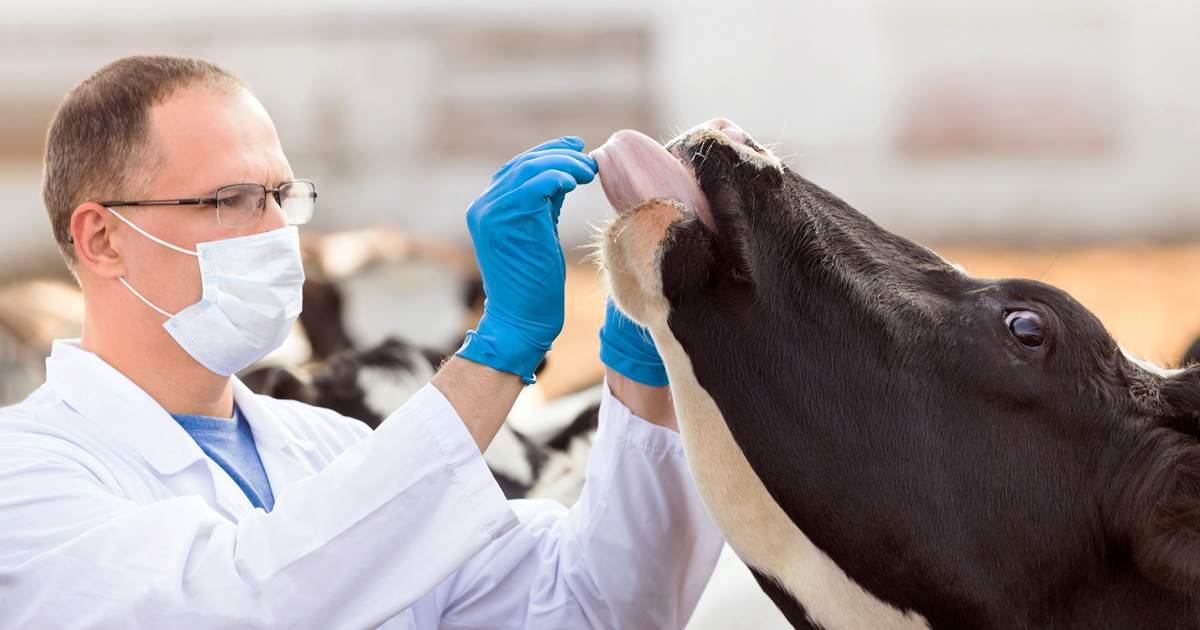I’ve spent a lot of time thinking about purpose lately…
I suspect, as a lot of veterinary students prepare for finals and graduation, they’re probably wondering what theirs is, too. They’re only a handful of years into this career and they’ve probably had to answer “why did you want to be a vet?” thousands of times.
Has anyone ever come up with a unique and succinct answer to that? I haven’t – and most vets I ask get a far-away look before trying to decide whether the answer they recounted to an admissions board still stands. The more I find out about the directions this career can pull you in, the more inane my answer sounds.
What I can answer, is why I work in farm.
Pigs in kitchens
Working with livestock gives me a unique opportunity to spend my days tending to different species – ranging from commercial beef cows to pet sheep, high-value imported alpacas to pigs that live in kitchens.
No one day is the same. My clients have unique and different connections to their animals; of course, commercial interest can predominate, but there are deep emotional connections to herds as well as individuals, and some relationships where it’s hard to determine who is keeping who alive and well.
This is why, as you may have gathered from a previous column, it makes me sad to see the general public and media turning their back on farmers of commercial livestock. I suspect this growing societal resentment has had something to do with the diminished interest in farm animal veterinary careers among vet students, too.
Near myth

We spend a lot of time with clinical students in our practice and I am a little disappointed so many talented, intelligent and capable students seem to feel bad about it, but have absolutely no interest in a career in farm animal vetting.
A stereotypical image of a farmer seems to be imprinted on their minds already; his animals are numbers, he won’t spend on diagnostics and he’ll never take a chance on an animal that is beyond her most profitable years. I won’t call this farmer mythical, but I can say with certainty this isn’t the person I meet several times every day.
Disconnected
Where is this disconnect coming from? Is it because farming has closed its doors as a defence against a media battering or is it we don’t want to get our hands, feet, everything dirty in pursuit of what is actually going on?
I’ve had students say they don’t feel connected to the profession because they aren’t from rural backgrounds and worry they won’t be accepted, but to this I say: I have never seen farmers more enthusiastic than when a potential new farm vet accompanies me to a visit. They’re always keen to know whether the student intends to explore farm work, and many seem a little disheartened when they reveal their intention to do anything but.
Think about it…
So, students, if you’re on the fence, let me hit you with some selling points:
- Farm vets get to be outside. This might really suck for four months of the year, but, for the most part, the drives are beautiful, you get the greenest office in the world and get to know all the best service stations.
- Farm vets get to do cool surgeries without worrying about the really tiny, fiddly bits you find in kittens. Then you get to tell stories about how you delivered twin calves by caesarean with a pen torch in your mouth.
- Farm vets are at the forefront of safeguarding animal welfare and public health. Perhaps the biggest selling point of the job is that it isn’t just about animals, but the people that rely on them, and the people who benefit from animal produce, too. We’re involved in the whole process and always working to improve every stage.
- Farm vets get farm produce as treats. Who needs endless boxes of Quality Street when you get ingredients for the best cooked breakfast snuck right into your car?
- Out-of-hours work can be rough, but it is thrilling to arrive to scenes where your expertise is truly needed and appreciated, and really makes a difference. Plus, the longer you stick at it, the deeper your impact can be.
- Farm vets are invested in. Contrary to popular belief, you aren’t just dumped into a cruddy practice car with nothing but a ropey calving jack, a bottle of Penstrep and your wits. Great programmes are available for new graduates or those wanting to get into farm from other disciplines. Mentorship in farm practice means you get the support you need on farm until you’re confident making decisions for yourself – there is, believe it or not, team spirit despite lone working, if you know where to look.
If anyone is still on the fence, I’d be more than happy to talk any queries out. Feel free to DM me on Twitter via @ami_vet.

Leave a Reply